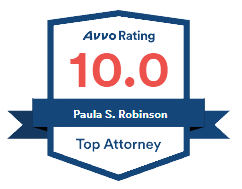Employee Legal Awareness Day was established by an Australian lawyer, Paul Brennan. His aim was to emphasize the importance of legal education for employees and small businesses and reduce their risk of legal problems. The day isn’t only about laws though, Brennan also suggests that employees should increase their awareness of their company’s policies. According to him, it is important for employees to have a copy of the employer’s handbook, where you can find information about bereavement policy, attendance and punctuality, conflict of interest statements and non-disclosure agreements. We thought it would be the perfect opportunity to focus on the employees’ rights in the event of a work injury. Here are a few “what if” scenarios:
What if you at work and you are required to work outside, and you slip and fall on ice or some slippery substance and you are injured? In order for you to have the right to pursue a workers’ compensation claim in PA, you need to meet the following requirements: There is a definite employment relationship between you and the employer; that the accident happened in Pennsylvania in the course of employment; and that your activity at the time of the injury is related to the employment. If you met that burden, then next comes your burden of “Notice” to your employer of your work injury.
You must give notice of your work injury within 120 days of the injury. There are cases, such as cases of work-related aggravation of preexisting conditions, such as asthma or emphysema that may extend that time period of giving notice. In such cases, it could be argued that the time period did not begin to run until you know or by reasonable diligence should have known that your condition is related to the employment. In the cases of repetitive trauma, such as typing or data entry causing a diagnosis of carpal tunnel syndrome, for example, the 120 days would not begin to run until after the last day or work. Of course, these different scenarios would be on a case by case basis.
Who should “notice” be given to? Proper notice should be given to a Supervisor, Foreman, Boss, whoever is your Superior at your workplace. Notice to a co-worker is not enough for you to meet your burden. You can give oral, text, or written notice, but you must be able to prove that you actually gave notice of your work injury.
If your work injury is contested by your employer’s workers’ compensation carrier, then whether you have met your burden of notice under the PA Workers’ Compensation Act will be determined by a PA Workers’ Compensation Judge. This will require your testimony to be given before a PA Workers’ Compensation Judge that should consist of when, how, exactly what was said by you, and your employer’s response to you, if any. Also, in order for notice to be proper, you must advise that not only you have an injury, but that the injury occurred at work, while you were performing work for your employer. In addition, you will not be required to give a medical diagnosis (this would be for your medical provider to testify to), but to give enough information about how, when, and what body part(s) were injured.
You have the right to pursue a workers’ compensation claim, but after notice, you must have medical treatment, and a medical provider to support the fact that you actually had a work injury and that you will miss time from work as a result of the injury. You will have to miss at least seven (7) consecutive days from work in order to receive wage loss workers’ compensation benefits.
It is important to note that your PA employer is required by law to have a list of Panel Providers posted and given to you at your time of hire, and at the time that you give notice of your work injury. If your employer has Panel Providers, you will be required to treat with them for the first ninety (90) days after your work injury. After that, you can treat with a medical provider of your choice. If you have the scenario that your employer does not have Panel Providers, then you can treat with a medical provider of your choosing.
After you have been injured, given notice to your employer, treated, and have medical documentation to back up your claim, then your employer has the duty to report the work injury to their workers’ compensation carrier. Once the workers’ compensation carrier has received the claim, they will have twenty-one (21) days to accept your claim temporarily or outright, and for medical only benefits, or to pay you wage loss and medical benefits, or deny your claim.
Every case is different in that each injury is unique, every workers’ compensation insurance company is different as to how they process claims, and it does sometimes require patience on the part of the injured worker to learn whether or not your claim will be accepted or denied.
- If your claim is initially accepted, then you will not need to go into litigation….in order to have your benefits started.
- If your claim is denied, then unfortunately, you will have to go into litigation to fight for your benefits.These scenarios are discussed in other blogs on my website, or if you have questions about your particular situation, please feel free to contact me directly, Paula Robinson at Robinson Law, 215-530-7166.










